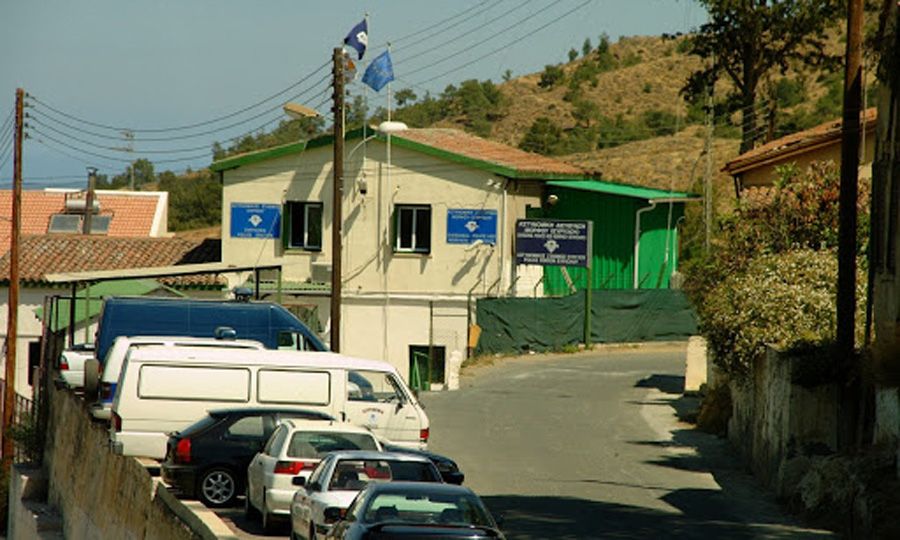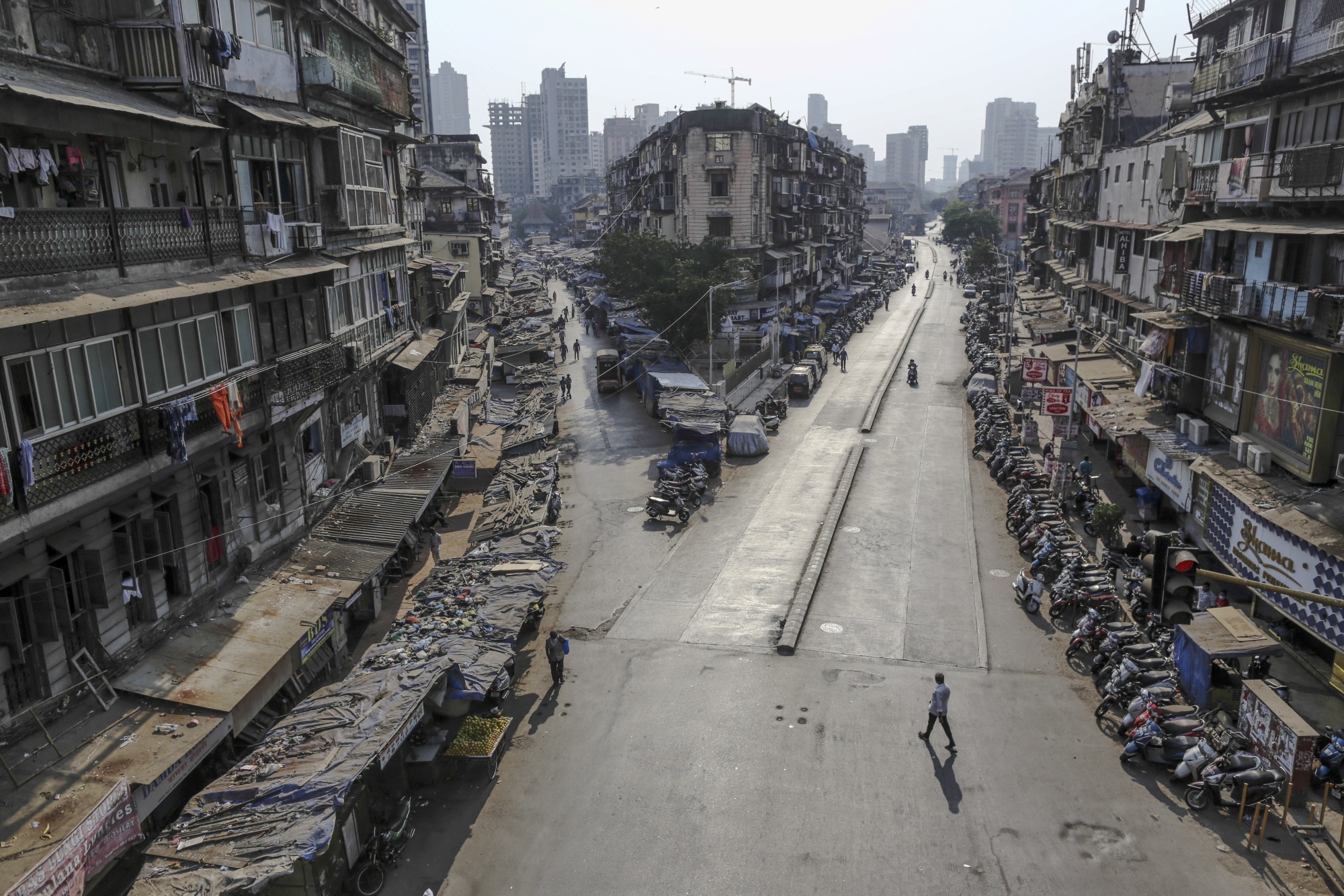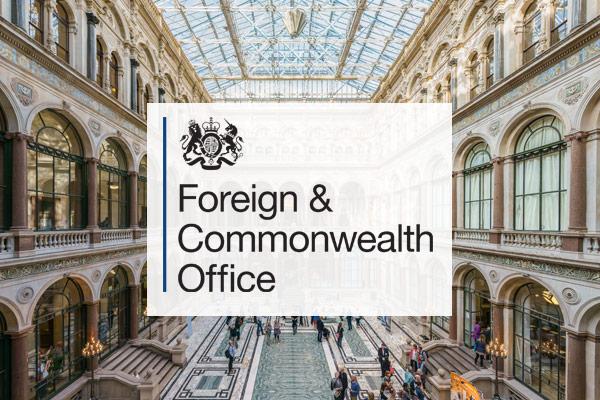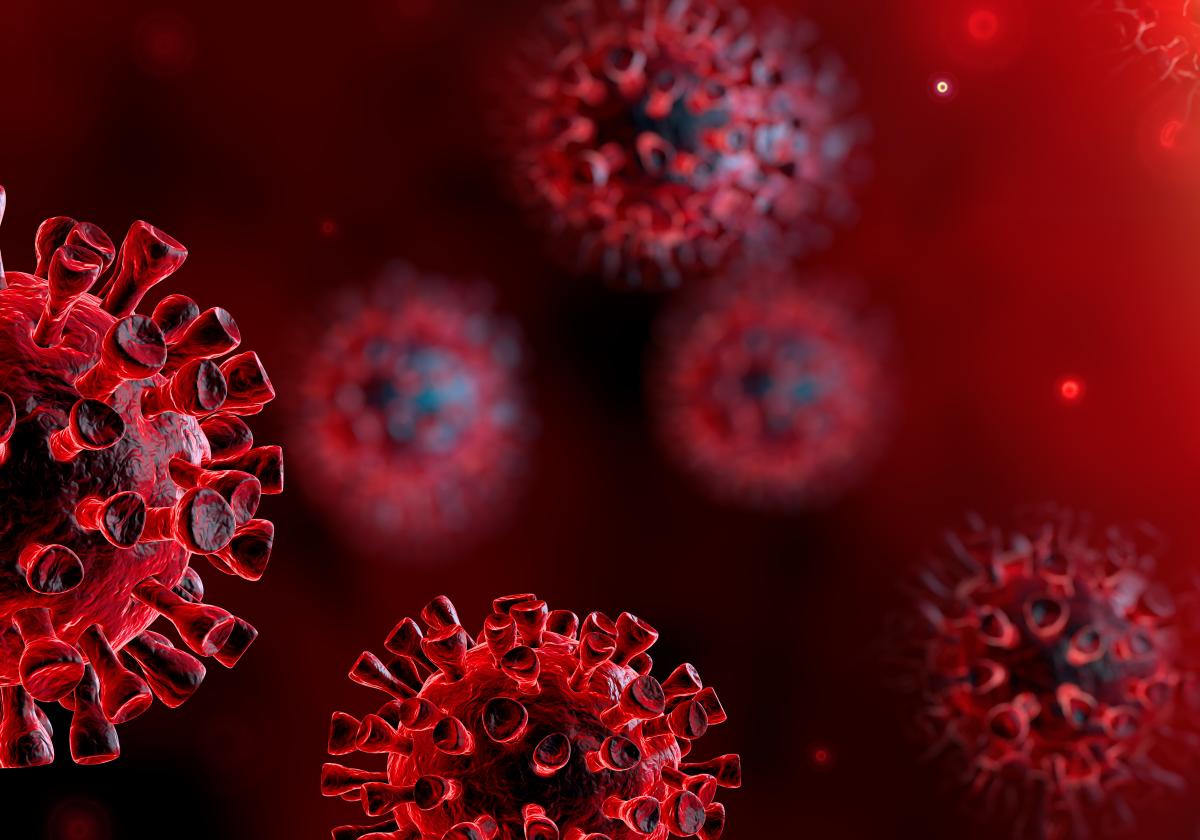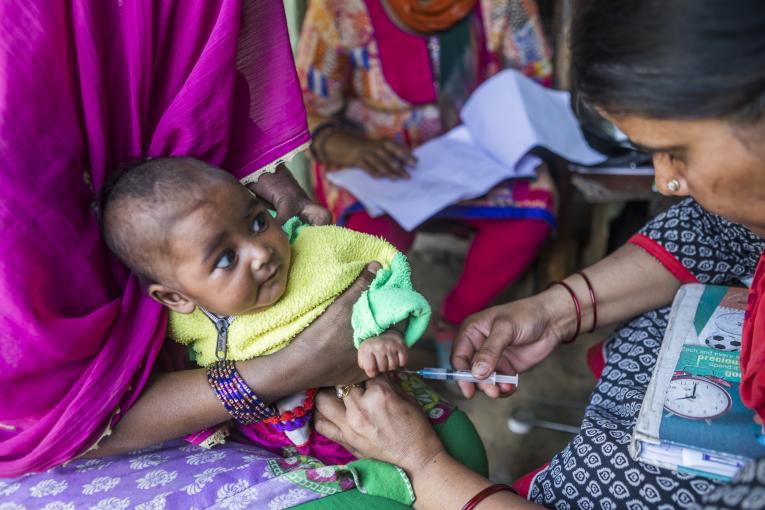Home
A Nepali man stabbed to death by housemate in Cyprus
Dinesh Gautam , GNN, Cyprus — A young man living in rural Nicosia turned himself in to police after stabbing his roommate to death during a fight.
According to local media, a 21-year-old male from Nepal got into a fight with his housemate, also aged 21 from the same country, after a heated argument in the residence escalated.
The incident took place Tuesday night around 10:30pm at a residence in Evrychou, Nicosia district, where the suspect grabbed a knife and stabbed the victim, wounding him fatally.
Other housemates witnessed the fight, which reportedly followed arguments over household chores
Fifteen minutes later, the suspect walked into the local police station and told officers what had happened, according to media reports.
Police went to the scene and the victim was rushed to the local Emergency Room, where a doctor on duty pronounced him dead on arrival.
Additional reports said other housemates witnessed the fight, which followed arguments over household chores. According to local media, the perpetrator was being scorned by his housemates for failing to chip in around the house.
Police said they arrested the suspect on suspicion of premeditated murder.
UK death toll rises above 32,000 overtaken Italy as worst-hit European country
London — The UK has now suffered the worst coronavirus death toll in Europe, ahead of Italy, and ranks behind only the US in the world.
The Office for National Statistics’s (ONS) head of health analysis and life events division Nick Stripe said 30,000 deaths had taken place in the UK where COVID-19 was mentioned on the death certificate.
The ONS published its latest figures on Tuesday morning.
They show there were 29,710 deaths involving COVID-19 in England and Wales up to 24 April, aol writes.
Lots of comment about the UK having the highest death toll in Europe. International comparisons are incredibly difficult to do and will be for some time to come.
UK death registrations data is the fastest, most frequent and most in depth than any other stats agency.
1/n
— Nick Stripe (@NickStripe_ONS) May 5, 2020
In that same period, the Department of Health reported on 22,173 deaths, meanings the ONS figures are 34% higher. ONS figures include all mentions of COVID-19 on the death certificate, including where it was suspected.
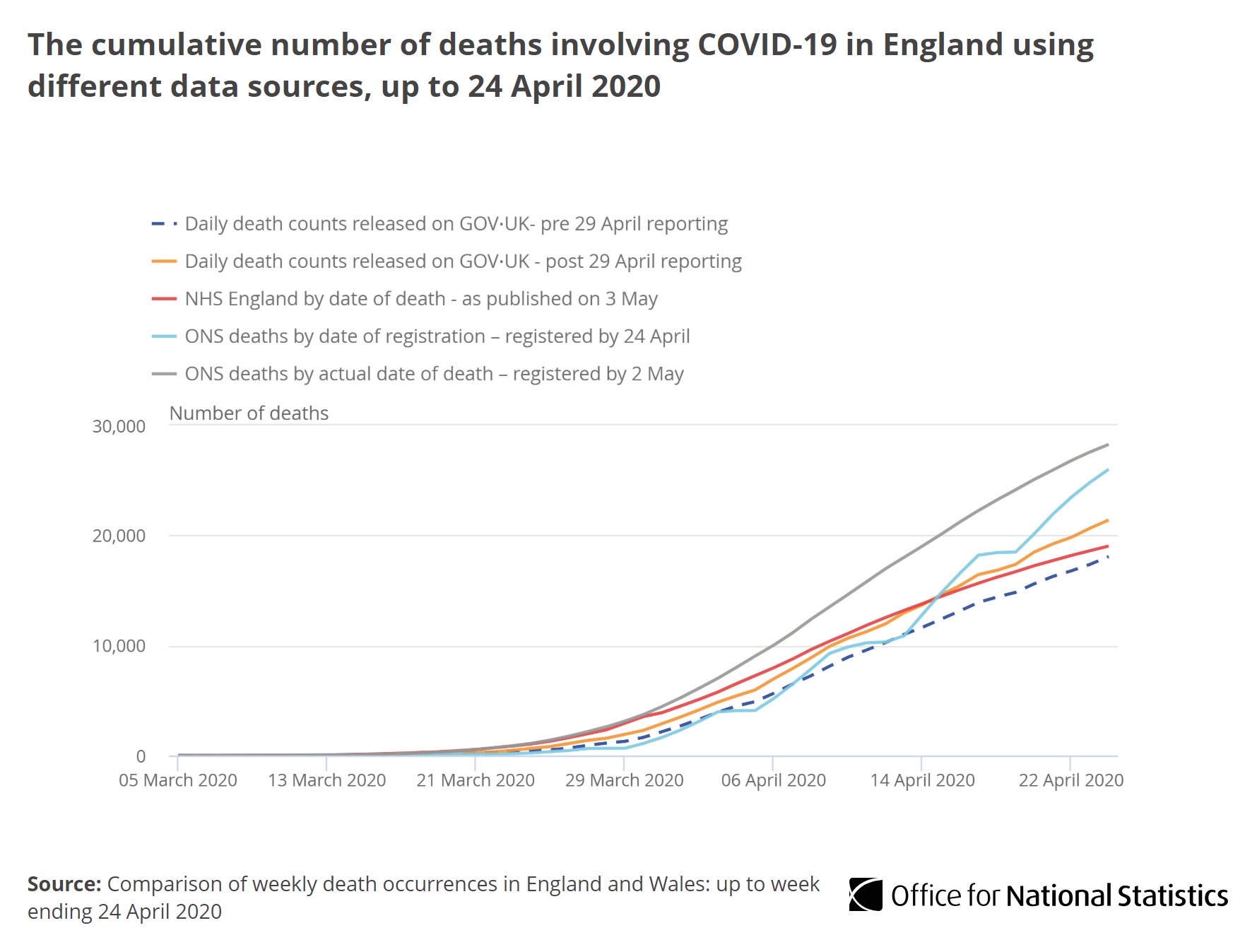
Matt Hancock said 190,584 people have now tested positive for coronavirus. The figures followed a further 229 deaths in hospitals across the UK yesterday, which was the lowest daily increase for five weeks.
Of the hospital deaths, England recorded another 204 deaths, Wales another 14, Scotland another five and Northern Ireland another six.
Government to bring Contract tracing app
According to BBC , Millions in the UK will soon be asked to monitor their movements, to limit the spread of coronavirus.
The trial of a “test, track and trace” programme is starting on the Isle of Wight. Residents will be asked to download a smartphone app designed to quickly trace recent contacts of anyone with the virus.
If it’s successful, a nationwide programme will be rolled out within weeks.
Contact tracing is used to slow down the spread of infectious outbreaks.
When someone gets coronavirus everyone they have been in prolonged contact with will be tracked down and potentially asked to self-isolate.
Phoning or emailing the friends and family of coronavirus patients is one way of contact tracing
This can be combined with a location-tracking mobile app, to pick up others they have been in contact with, for example on public transport.
McDonalds to open Fifteen outlets on 13 May with new coronavirus safety measures
London— McDonald’s has announced which restaurants it plans to reopen next Wednesday for the first time since the coronavirus lockdown.
The 15 sites, which will all be for delivery only from 13 May, are largely based in and around London and the South East.
The fast food outlets will offer a limited menu and will open from 11am until 10pm.
McDonald’s joins a group of fast food outlets and coffee shop chains, including Nando’s, Burger King and Pret a Manger, to start phased reopenings during the Covid-19 lockdown, the Guragain writes.
The Caribbean restaurant chain Turtle Bay, which has 44 outlets around the country, is to reopen four for takeaway only – including in Bristol and Nottingham – while Deep Blue, part of the Harry Ramsden’s group, is to open one outlet in Havant, Hampshire, to test out a delivery-only model.
Full list of McDonald’s stores opening for deliveries:
Boreham Interchange (near Chelmsford)
Chelmsford – Riverside
Chelmsford – Westway
Gillingham – Beechings Way
Gillingham – Bowaters
Ipswich – Cardinal Park
London – Dalston
London – Harrow
London – Tooting
London – Welling
Luton – Leagrave
Luton – Chaul End Lane
Luton – George Street
Sittingbourne retail park
Watford – Hertfordshire Arms
Virendra Sharma, MP, hosts webinar for stranded Indian students in Britain
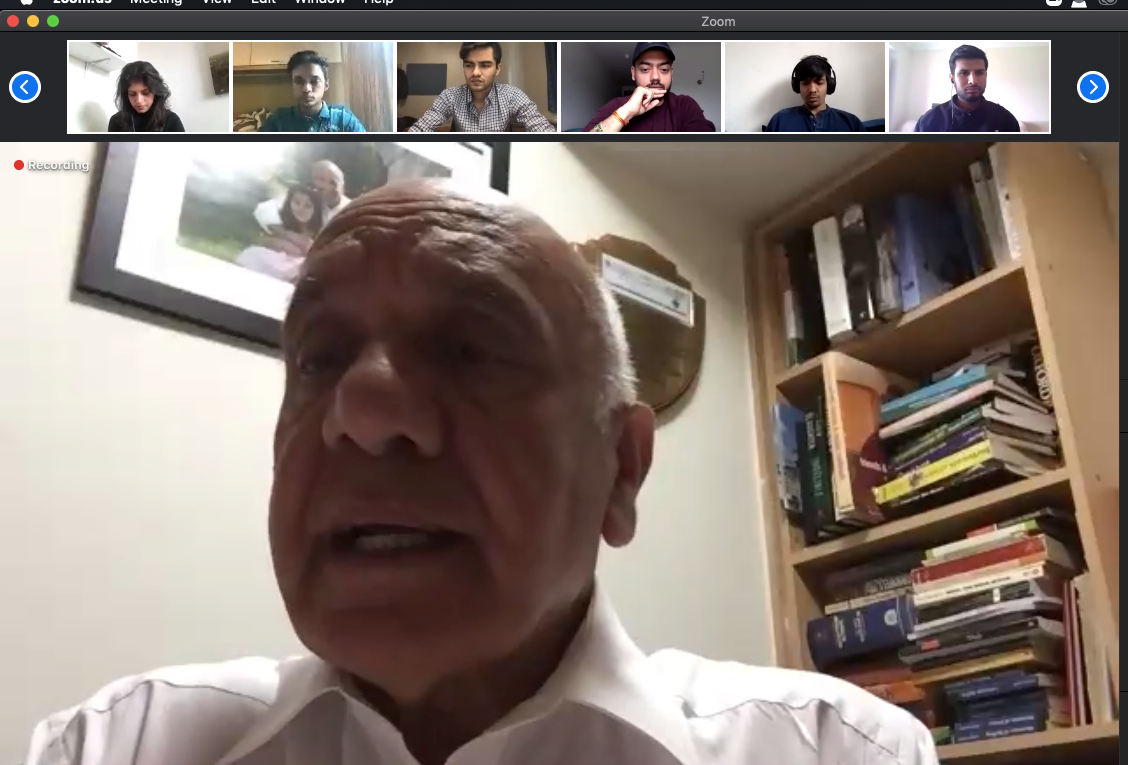
During the webinar Virendra Sharma talked about his own experience with corona virus, the amazing work of dedicated National Health Service (NHS) heroes and how we can all help each other get through this. Following his talk, he fielded questions from students from up and down the country about different aspects of the lock down, about their personal safety, money worries and getting home.
“This is a listening exercise, I want to know what problems you are facing so I can help you. Its no good me just guessing what your issues are so I am here to find out. Anything I can help you get from the British or Indian governments I want to help with,” MP Sharma said.
The issues most often raised by students were lack of money due to being stopped from working, being stuck in Britain and family members being unable to visit banks in India to send them money.
Sanam Arora, Chairperson NISAU said, “We are grateful to our patron Mr Sharma for a holistic and thorough engagement with the distressed Indian student community. This has provided a sense of relief to Indian students that their concerns are being listened to by Britain and will get adequately considered by the British Government.”
Similarly, Mohanish Borana, President NISAU said, “On behalf of my team, we are absolutely honoured to have Mr Sharma interacting with distressed Indian Students from more than 65 universities all over the U.K on a NISAU platform. His commitment to help the community was quite heartwarming as he answered each and every query with compassion and empathy. I am sure students must have learned a lesson or two from his experiences of surviving corona.”
American Nepali guy Arthur Gunn makes ‘American Idol’s’ Top 11, needs votes to advance to Top 7
London — American Nepali guy Arthur Gunn is now a member of the “American Idol” Top 11.
On Sunday night’s show, which again featured singers performing from their homes across the country amid the coronavirus pandemic, “Idol” cut its list of Top 20 performers to 11. The Top 10 finalists were determined by audience votes collected after the Top 20 each performed from home last week. The judges chose to save one additional singer, kansas.com writes.
The list will be cut from 11 to 7 next week, and people can vote for their favorites to advance until 8 a.m. Central Time on Monday. To vote for Gunn, people can text 16 to 21523, vote online at americanidol.com or vote via the “American Idol” app.
On Sunday night, after he was announced as a member of the Top 11, Gunn performed a rendition of John Denver’s “Country Roads, Take Me Home” but added a reggae twist.
Wearing a red beanie and strumming his guitar, Gunn performed from the back deck of his Wichita home, but this time, viewers saw a different angle. There’s a large highway visible behind his home. Possibly K-96?
Gunn, whose birth name is Dibesh Pokharel, is a Nepal native who moved with his parents to Wichita so his sisters could attend school. He performed in coffee shops in Wichita before taking his shot on “American Idol.”
The package before Gunn’s performance included footage of him making traditional food from Nepal with his parents and sisters in their home, where he says they are all in quarantine together.
He explained in the clip why he chose the song he did.
“The words of that song remind me of the place I grew up,” he said.
Celebrity judges Katy Perry, Luke Bryan and Lionel Richie seemed pleased with his performance, and Perry praised him for keeping his eyes open throughout the song.
“I felt so much more connected to that performance with you connecting with me, looking at the camera and working it,” she said.
The next episode will air at 7 p.m. next Sunday, May 10, and feature the finalists singing Disney songs. The winner will be named on May 17.
Journalists working in poor conditions in South Asia: IFJ
London— The International Federation of Journalists (IFJ) has said increased controls during the Covid-19 pandemic has highlighted the existing inequalities and poor working conditions that exist for journalists in South Asia.
In its 18th edition of the South Asia Press Freedom Report, the IFJ said that during 2019-20, in India and Bangladesh, journalists came under fire while covering civil disturbances and protests. In Sri Lanka and Afghanistan, the fight for safe access to information continued amid tumultuous elections. In Nepal and Pakistan, the battle against a heavy legislative hand was waged. While in Bhutan and the Maldives, the challenge for survival of a small but critical media was never so great.
Plummeting media revenues saw the mass shedding of more than 3,000 journalist jobs in Pakistan too, while harsh online controls saw Kashmir take the mantle for the world’s longest communication shutdown in a democracy, the report said.
In the period under review, the IFJ and its affiliates documented 219 violations against the media. This includes 52 jailings or detentions, 90 threats to the lives of journalists, 65 non-fatal attacks, 35 threats against media institutions, 8 gender-based attacks and 82 threats or attacks on rural, regional or minority journalists.
However, as the report shows, amid Covid-19, cuts and controls, South Asia’s media and the unions and networks that defend it continue persevering, standing together in solidarity to disrupt authoritarian narratives.
“The media had the task of reporting the growing humanitarian crisis, working in difficult circumstances and amidst unprecedented physical curbs due to lockdowns and restrictions, particularly in containment zones. The Covid-19 crisis has exacerbated existing fault lines in the precarious freedoms that the South Asian media has fought for and the most vulnerable are now taking the first beating,”the IFJ said.
The full report can be accessed here:
https://ifj.org/fileadmin/user_upload/States_of_Control_IFJ_SAPFR_2019-20.pdf
COVID-19: CSOs call for fair & equitable benefit sharing of medical products
London — Geneva (Kanaga Raja/Third World Network) – Nearly 400 civil society organizations (CSOs) and individuals have called for the operationalization of fair and equitable benefit sharing arising from the sharing of SARS-CoV-2 (the virus that causes COVID-19) digital sequence information and samples as recognized by the Convention on Biological Diversity (CBD) and its Nagoya Protocol.
In a letter to UN Secretary-General Antonio Guterres and the World Health Organization (WHO) Director-General Dr. Tedros Adhanom Ghebreyesus, the groups said they recognize that sharing SARS-CoV-2 samples as well as sequence information continues to be pivotal for the development of diagnostics, therapeutics and vaccines.
But a collective global public health response requires fair and equitable benefit sharing on an equal footing, they emphasized.
The letter to both the UN Secretary-General and the WHO Director-General was endorsed by 40 global and regional civil society organizations and networks, 228 national organizations and networks as well as 124 individuals from 77 countries.
Among the global and regional civil society organizations that signed on to the letter are ActionAid International; FIAN International; Global Policy Forum; Health Global Access Project (Health GAP); Indigenous Peoples Global Forum for Sustainable Development; Least Developed Countries (LDC) Watch; Peoples Health Movement; Society for International Development; Social Watch; Third World Network; Friends of the Earth Europe; Focus on the Global South; Institute for Social and Economic Analysis-INESC (Brazil); IT for Change (India); Fairwatch (Italy); Consumers Association of Penang (Malaysia); and Public Eye (Switzerland).
In their letter, the groups underlined that the CBD and its Nagoya Protocol are binding international instruments based on the principles of fairness and equity, linking access to biological resources with fair and equitable sharing of benefits arising from the utilization of such resources.
These principles are endorsed by WHO Member States as they form the basis of WHO’s Pandemic Influenza Preparedness Framework (PIP Framework), a multilateral instrument which recognizes the importance of sharing influenza viruses of pandemic potential on an “equal footing” with benefit sharing, considering both “as equally important parts of the collective action for global public health”, they said.
“We are heartened by the sharing of COVID-19 samples with reference laboratories for rapid confirmation and analysis as well as the sharing of digital sequence information.”
The first genetic sequence data for 2019-nCoV from China was freely and rapidly shared with the Global Initiative of Sharing All Influenza Data (GISAID).
Since then, samples and digital sequence information continue to be shared by developing countries.
Mounting evidence that, like influenza, the CoV-2 virus is mutating as it spreads around the world implies an ongoing need for epidemiological surveillance to collect and sequence CoV-2 strains from around the world to ensure that any new treatments will remain effective, said the CSOs.
They noted that the WHO’s R&D Blueprint titled “A Coordinated Global Research Roadmap: 2019 Novel Coronavirus” agrees that “virus materials, clinical samples and associated data should be rapidly shared for immediate public health purposes and that fair and equitable access to any medical products or innovations that are developed using the materials must be part of such sharing”.
The Blueprint also recognizes that “Access to the benefits of research is critical” and that the “scale up manufacturing of products (speed, access, cost)” is an important component of a successful implementation of the Roadmap.
It further calls on research funding grants to “include clauses that promote timely sharing of research data relevant to the outbreak response”.
Despite these good intentions, it remains unclear whether and how these elements are being operationalized, with fair and equitable benefit sharing realized, said the letter to the UN Secretary-General and the WHO Director-General.
“We are very distressed over the scramble for medical supplies to curb the COVID-19 outbreak, with developed countries, especially the United States and European countries leveraging their influence and spending, at the expense of the needs of developing and least developed countries around the world,” said the CSOs.
“We are extremely concerned by the lack of guarantee from bio-pharmaceutical, and diagnostic companies to ensure rapid availability and affordability of medical products (especially diagnostics, therapeutics and vaccines as they are developed and rolled out) to all in need in developing and least developed countries, and to ensure dissemination of manufacturing technologies to rapidly scale-up diagnosis and treatment,” they added.
The UN General Assembly Resolution A/74/L.52 calls on the UN system “under the leadership of the Secretary- General, to work with all relevant actors in order to mobilize a coordinated global response to the pandemic and its adverse social, economic and financial impact on all societies”, they noted.
The UN Resolution A/74 L.56 on “International cooperation to ensure global access to medicines, vaccines and medical equipment to face COVID-19” requests “the Secretary-General, in close collaboration with the World Health Organization, to take the necessary steps to effectively coordinate and follow up on the efforts of the United Nations system to promote and ensure global access to medicines, vaccines and medical equipment needed to face COVID-19.”
The spread of COVID-19 has already disproportionately impacted high risk populations including the elderly, the poor, the malnourished, those with pre-existing medical conditions and migrant workers.
Women across the world are facing increased domestic violence and bearing a range of disproportionate socio-economic impacts.
Timely access to diagnostics, medical treatments and potential vaccines for these populations require special attention, especially in developing and least developed countries, said the CSOs.
“We urgently need the UN and WHO to take urgent steps to secure timely availability and affordability of medical products for developing and least developed countries.”
WHO’s PIP Framework sets a precedent for securing binding commitments from manufacturers in the context of a pandemic.
However, the extensive outbreak of COVID-19 will require far more ambitious guarantees from manufacturers, said the CSOs.
In this regard, the CSOs urgently called on the UN and the WHO to:
1. Secure binding commitments from bio-pharmaceutical companies and other manufacturers for the rapid supply of existing and future medical products, especially diagnostics, therapeutics and vaccines to developing and least developed countries at an affordable price.
2. Organize open platforms for the widespread and unconditional sharing of technology and knowledge including technical specifications, designs, blueprints and any other know-how to scale-up local/regional manufacturing of medical products required for COVID-19 response including diagnostics, therapeutics and vaccines; and towards that end to secure binding commitments from bio-pharmaceutical companies and other medical product manufacturers.
3. Proactively coordinate and direct COVID-19 R&D by setting up an open innovation platform for the rapid public sharing of all research outcomes, knowledge gaps and problem solving, and towards that end secure binding commitments from entities and individuals engaged in the R&D.
4. Ensure that intellectual property rights do not affect or hinder efforts to curb the COVID outbreak..
A copy of the letter was also sent to the President of the United Nations General Assembly, the President of the UN Economic and Social Council (ECOSOC), the Acting Executive Secretary of the Convention on Biological Diversity, and the UN High Commissioner for Human Rights.
Dr. Runa Jha from Nepal is recognised as one of the World’s Top 5 Women on the front lines of COVID-19
UN Women — As the COVID-19 crisis unfolds, the lives of women and girls everywhere are changing. While some spheres of work and personal life are on pause, others face increased strains and new challenges. Millions of women worldwide are part of the essential workforce on the front lines of COVID-19.
Globally, women make up the majority of workers in the health and social sector.
Nearly one in three women work in agriculture, and women do three times as much unpaid care work at home as men, Medium.com writes.
From farming to first-response services and everything in between, women are playing an outsized role in keeping their communities safe and resilient in the face of COVID-19.
On World Day for Safety and Health at Work, here are the stories of just five women on the front lines. Join UN Women in thanking them for their service.
Amal Al Mahayrah and Hadeel Dabaibeh are familiar with crisis response. As UN Women Field Assistants in Jordan, they provide urgent and life-saving services for vulnerable Jordanian women and Syrian refugees every day. However, the coronavirus pandemic has brought the front lines much closer to home: from the caravans and community centers to the mobile phones in their palms.
Seated at her desk, Amal calls Siham Alqatameen, a 54-year-old woman living in Ein Albaida, south of Jordan. Over the phone, Amals informs Siham of available counseling and psychosocial support and gives her reliable information on COVID-19 prevention and services.
Siham is one of more than 800 beneficiaries that UN Women field staff have proactively reached out to daily since the outbreak began, providing services and resources via mobile phones.
Digital technologies have been an essential tool for seamlessly maintaining services for vulnerable women and refugees in Jordan during the outbreak; A 24-hour hotline is also available for women experiencing gender-based violence, and UN Women is using its innovative blockchain cash-disbursement system to continue delivering funds to Syrian refugees. Each refugee’s account is linked to the blockchain, which is connected to an iris-scanning system in supermarkets run by the World Food Programme, so refugees can access the money without interruption and safely purchase food and essential supplies while in lockdown.
Stepping up for public service in rural China
Yan Shenglian stands proudly behind the checkpoint in her rural village of Xiaruoyao, in China’s northwestern Qinghai Province. As people come and go from the village, Yan checks their body temperature and records their vehicle information. Her duties are essential to reducing the spread of the new coronavirus, but the tasks are new to her; she’s one of many women without a medical background who have joined the fight against COVID-19 in China.
Yan is a pig farmer by trade, and it wasn’t long ago that she, like many women in her village, thought taking part in public affairs was a man’s job. After participating in a series of skills training sessions in 2019, her perspective changed.
As part of the UN Women-supported programme, Yan learned how to raise pigs organically, discovered how to sell her livestock on online platforms, and received leadership training.
“Although some men do not want to admit it, they are silently imitating and learning my methods,” she says. Her abilities are no longer questioned, she says, and her village has become more accepting of women’s leadership in community initiatives.
In both her roles as a farmer and as a community volunteer, Yan is contributing critical services and is stepping up to stop the spread of COVID-19.
Click here to learn more about rural women farmers joining the fight against COVID-19 in China.
Leading coronavirus testing efforts in Nepal
Dr. Runa Jha is Chief Pathologist and Director of the only laboratory authorized to conduct COVID-19 testing in Nepal. She and her team are testing roughly 70 samples a day, which arrive at irregular intervals and make for around-the-clock work.
“Staying late at the lab has become the norm. In addition to the technical work, I also have to manage logistics, such as arranging transportation and food for my team,” she says.
Taking care of her team is high priority for Jha; it all begin in mid-February when her group was the first to enter a quarantine facility housing 175 Nepali students brought home from Wuhan, China.
“My team did not hesitate to volunteer to take samples… all of them were ready. We worked the whole night and produced 175 reports the following day,” she shares.
Months into the pandemic, the intense work continues. Jha does her best to support the workers and boost morale. “It is a very difficult time for us, and I have to keep them motivated. I talk to them whenever I sense they are feeling down. I tell them their safety is our priority,” she says.
The demands of the job have been challenging for Jha too. She’s living alone, separated from her daughter and husband, because she fears risking their lives with infection. She can’t visit her parents either, who she used to see three times a week.
“I want to hug my daughter and take care of my parents, but this sacrifice needs to be made to keep them and others safe,” Jha says.
Click here to read more about Jha’s leadership on the frontlines of the COVID-19 response in Nepal.
Supporting survivors in Kazakhstan
Before quarantine, the helpline operated by the NeMolchi (Don’t Keep Silent) movement in Kazakhstan received calls mainly from survivors of sexual violence. Now, the phone rings 10 to 15 times a day, and almost all the calls are from women who were suffering from domestic violence.
Due to the containment measures in place to reduce the spread of the virus, women with violent partners increasingly find themselves isolated from the people and resources that can help.
“Women are not willing to report to the police because they are living in isolation, and sometimes in large families, with their husband’s parents and other relatives in one house,” says Dina Smailova, leader of the NeMolchi movement and well-known Kazakhstani activist.
In the past two year, NeMolchi has provided free legal support to 120 women, with 47 cases resulting in rape convictions, but the COVID-19 crisis poses new challenges that worry Dina. “During quarantine, the courts do not work, claims are not accepted, abusers are not isolated, and women have to continue living with their abusers,” she explains.
Despite the dire circumstances, Dina continues to push for justice and policies that better protect women; “The fact that domestic violence is not a criminal offence in Kazakhstan is hurting women during COVID-19 crisis. If, for example, violation of a protection order by the aggressor immediately becomes a criminal offence with a longer sentence, I think that would make a difference,” she says.
For more on how Dina is standing with survivors during the coronavirus pandemic, read her full interview.
Maintaining hope for her Caribbean community
Ryancia Henry. Photo courtesy of Ryancia Henry.
When the California hotel where Ryancia Henry worked as Director of Housekeeping closed because of the COVID-19 outbreak, she called her mom in Antigua and Barbuda. “Get here (home) now,” her mom said, almost in tears. “I want you to be safe.”
But returning to Ryancia’s home country proved to be impossible as international flights to the island were suspended, so she remained alone in the United States.
Ryancia is among millions of workers currently out of work and contemplating how the long-term impacts of the crisis will affect her, her staff, her family and her friends. Like many migrant workers, she carries the extra responsibility of financially supporting her family back home.
“The financial impact on hospitality alone has just been so staggering… I worry for myself depending on how long this goes on, what kind of decisions do I have to make, to be financially okay, and I have the same concerns for my team. I send some funds home, to help my mom. I worry about maintaining some payments,” Ryancia shares.
And her concerns don’t stop there. She’s also worried about her island. “I am fearful for smaller countries that have limited resources during COVID-19. Antigua depends on tourism as the main industry and by closing hotels and airports, basically our main industry has come to a halt,” she says.
However, as she practices physical distancing and stays home to stop the spread of the virus, Ryancia remains hopeful. She checks in with family, shares helpful messages on social media, and exchanges best practices with her friends and contacts in the hospitality industry in Antigua and Barbuda.
“I know how resilient island people are. Being born on an island, hospitality and resilience are in my foundation.”
For more on how the pandemic is affecting women in the tourism and hospitality industry and migrant workers, read Ryancia’s full interview.
Supreme Court’s Decision Reaffirms the Need to Amend Transitional Justice Law
HRW, New York — The decision by Nepal’sSupreme Court to reject a petition by the government asking that it reviews its 2015 ruling against amnesties for grave conflict-era crimes is an important step in securing truth, justice, and reparations for the thousands of victims of the country’s decade-long conflict, Amnesty International, TRIAL International, the International Commission of Jurists (ICJ), and Human Rights Watch said today.
Human Rights Watch is now on Apple News
The armed conflict between Maoist and government forces ended in 2006, but victims of serious abuses by both sides are still awaiting justice, accountability, and reparations. The four organizations called upon the government to revise the 2014 Transitional Justice Act and ensure its implementation in accordance with the Supreme Court’s judgments, so as to assure access to justice for the victims of conflict-era abuses.
Nepal’s transitional justice law, which was passed by parliament in April 2014, established a Truth and Reconciliation Commission and a Commission of Investigation on Enforced Disappeared Persons. However, it contained provisions that could allow for amnesties even for crimes such as torture, including rape and other sexual violence and ill-treatment and enforced disappearance. On February 26, 2015, the Supreme Court struck down the amnesty provisions and ordered the act to be amended accordingly. However, the government immediately petitioned to overturn the ruling. That petition was rejected by the court on April 27, 2020.
“With the Supreme Court’s decision, there can be no further excuse for government backsliding on ensuring truth, justice, reparations, and guarantees of non-recurrence. The government should immediately amend the Enforced Disappearances Enquiry, Truth and Reconciliation Commission Act, 2014 in line with the Supreme Court’s orders and its own international obligations,” said Biraj Patnaik, South Asia Director at Amnesty International.
With its latest ruling the Supreme Court has upheld the principle that there can be no amnesties for those suspected of criminal responsibility for crimes under international law and human rights violations. More than 13 years since the Comprehensive Peace Agreement of November 2006 promised justice to the victims, no one has been held accountable for any conflict-era crimes.
“The request filed by the Nepal government to review the decision of the Supreme Court was another attempt to evade the real issue: accountability for mass human rights violations. We are delighted that the Supreme Court held its ground and reaffirmed the importance of fair and efficient transitional justice mechanisms,” said Cristina Cariello, the Head of Nepal Program at TRIAL International.
Amnesty International, the International Commission of Jurists, Human Rights Watch, and TRIAL International have repeatedly expressed concerns about the faltering transitional justice process. Besides the failure to amend the law to uphold basic principles of justice, there have been long delays and repeated political interference in appointments to the two transitional justice commissions.
“Over the past decade, the Supreme Court of Nepal has produced some of the most human rights compliant jurisprudence in South Asia. This petition cynically sought to have the Court undermine its own judgement, so that the government could sidestep its responsibility to provide accountability for conflict-related human rights violations,” said Frederick Rawski, ICJ Asia Pacific Director. “The government has no excuse for not immediately amending the transitional justice legal framework so that it is consistent with the Court’s jurisprudence and Nepal’s international legal obligations.”
An effective transitional justice system requires strong legal foundations consistent with international law and standards, and the political will to address the demands of victims of the conflict, the organizations said.
“When Nepal stood for election to the United Nations Human Rights Council the government promised to uphold its human rights obligations, but three years later, as it seeks re-election, there has been nothing but impunity and evasion on transitional justice,” said Meenakshi Ganguly, South Asia director at Human Rights Watch. “These are crimes under international law, subject to universal jurisdiction, and if justice is denied at home victims may take their cases abroad.”
India extends lockdown for another two weeks
London — The Indian Ministry of Home Affairs issued on order under the Disaster Management Act, 2005, to further extend the Lockdown in the country for another two weeks.
The lockdown in India was supposed to end on May 4.
In fact, India’s big cities will stay under tight restrictions after a nationwide lockdown ends on Sunday, while areas less hard-hit by the coronavirus will be allowed to resume some activity, according to the government letter and state-level officials, Gulfnews reported.
Indian authorities are trying to chart a path out of the world’s biggest lockdown, imposed by Prime Minister Narendra Modi on March 25, which they credit with preventing an exponential surge in coronavirus infections.
In the letter, sent by Health Secretary Preeti Sudan to regional officials and reviewed by Reuters, the authorities set out plans to map the country into red, orange and green zones, depending on the local severity of the outbreak.
India’s biggest and most economically-important cities, including New Delhi, Mumbai, Bengaluru, Chennai and Ahmedabad, would all be classed as red zones, infection hotspots, and kept under strict lockdown.
To qualify as a green zone, eligible for quicker lifting of restrictions, an area would have had to report no new infections for three weeks. The classifications would be “dynamic” and updated at least weekly as conditions change, Sudan wrote.
India has reported more than 35,000 cases and 1,147 confirmed deaths from the virus. The official toll is far lower than in the United States and many European countries.
20,000 stranded Brits returning to the UK from South Asia on UK charter flights
London — In recent days, 28 further charter flights from India, Bangladesh and Pakistan have been announced, with the capacity to carry around 7,000 passengers:
- 14 from India, running between 28 April and 4 May
- 9 from Pakistan, running between 30 April and 7 May
- 5 from Bangladesh, running between 29 April and 7 May
These flights are in addition to 55 charters that have already departed from across South Asia in previous weeks, a press release from foreign office reads.
Lord (Tariq) Ahmad of Wimbledon, Minister of State for South Asia and the Commonwealth, said:
We have been working round the clock to ensure British people in the region can return to the UK and we have already chartered 55 flights, helping more than 12,000 Brits. These 28 additional flights will mean 8,000 more people are brought back to the UK from across South Asia.
We know British travellers remain concerned about getting home to their friends and families, and we continue to do all we can to bring them back to the UK.
British travellers should continue to monitor our travel advice for the latest information on flights and can contact our Embassies and High Commissions if they require urgent consular support.
The addition of 28 flights will mean the UK Government has facilitated the return of more than 20,000 British travellers on 83 flights from across the region since the coronavirus (COVID-19) crisis began.
When completed, the 20,000 British travellers on Government charter flights includes:
- more than 13,000 people will have returned to the UK from India on 52 flights by 4 May
- almost 5,000 people will have flown to the UK on 19 charter flights from Pakistan by 7 May
- more than 2,100 British travellers will have returned to the UK from Bangladesh by 7 May on nine charter flights
- more than 700 passengers have returned to the UK on 3 charter flights from Nepal between 8-17 April
The UK Government is working with the airline industry and host governments across the world to help bring back British travellers to the UK as part of the plan announced by the Foreign Secretary Dominic Raab on 30 March – with up to £75 million available for special charter flights to priority countries, focused on helping the most vulnerable travellers.
The UK has worked closely with governments in the region to keep commercial flights running and airports open. It has also chartered flights where commercial options are not available, and to help those who are most vulnerable to get back home.
Rishi Kapoor: Bollywood romantic hero dies aged 67 after battle with cancer
London — Veteran Indian actor Rishi Kapoor passed away on Thursday at the age of 67, reported Indian media.
The news of his death was confirmed by fellow actor Amitabh Bachchan.
The actor was hospitalised on Wednesday after he complained of having difficulty in breathing, Zeo news writes.
His brother, Randhir Kapoor had said the actor who had been suffering from cancer, complained of breathing problems after which he was rushed to the hospital.
“He is in the hospital. He is suffering from cancer and he has some breathing problem, so he has been admitted to the hospital. He is stable now,” Randhir had told Press Trust of India.
The actor had been diagnosed with cancer back in 2018 after which he spent over a year in New York City getting treated with his wife Neetu Singh being by his side.
He had earlier been hospitalised twice this year in February, first in Delhi over an infection and then Mumbai with viral fever.
Kapoor made his debut as an actor back in 1970, working for his father raj Kapoor’s film Mera Naam Joker and went to reign over the industry with his several romantic lead roles.
Kapoor’s death comes only a day after actor Irrfan Khan breathed his last in Mumbai on Wednesday.
UK deaths pass 26,000 as figures include care home cases
London — The number of people who have died with coronavirus in the UK has passed 26,000, as official figures include deaths in the community, such as in care homes, for the first time.
The foreign secretary said this did not represent “a sudden surge”, as the figure includes deaths since 2 March, BBC reported.
Dominic Raab also warned the UK was at a “dangerous moment”, saying that the peak of the virus had not passed.
The total only includes people who died after testing positive for coronavirus.
Meanwhile, figures show 52,429 coronavirus tests were carried out on Tuesday, still short of the government’s target of 100,000 tests per day by Thursday.
MP Sharma calls on British Airways to protect jobs of its employees
London – Labour leader and veteran MP, Virendra Sharma, has called upon the British Airways to withdraw its announcement of making 12,000 employees redundant.
In a statement, MP Sharma said, “12,000 people being made jobless during this most difficult time is not in anyone’s interest. British Airways is looking for Government money and they should have it to protect employment for thousands, but part of that deal should be halting job losses.”
The airline sector and aviation in general is in need of a comprehensive sector deal to support it through these incredibly difficult times, but the terms should require a moratorium on job losses, because forcing families onto Universal Credit will mean nothing but pain and hardship, MP Sharma said, adding. “British Airways staff in my constituency want to work, they want a job, and laying them off now before the airline knows what aviation will look like after lock down lifts is reckless and premature.”
The company said it will take several years for air travel to return to pre-coronavirus levels, a warning that has been echoed by airlines across the world.
Many other airlines are also making similar announcements as international travel has been badly hit in the wake of the corona pandemic.
Disruption of childhood vaccination in South Asia poses an urgent threat to children’s health: UNICEF
KATHMANDU, 28 April 2020 – South Asia could face yet another health emergency if children across the region do not receive their life-saving vaccine shots, UNICEF warned today.
Almost a quarter of the world’s unimmunized or partially immunized children—about 4.5 million children—live in South Asia. Almost all of them, or 97 per cent, live in India, Pakistan and Afghanistan. With lockdowns in place as a part of the novel coronavirus (COVID-19) response, routine immunizations have been severely disrupted, and parents are increasingly reluctant to take their children to health centers for routine jabs. Sporadic outbreaks of vaccine-preventable diseases, including measles and diphtheria, have already been seen in parts of Bangladesh, Pakistan and Nepal.
The South Asia region is also home to two of the last polio endemic countries in the world, Afghanistan and Pakistan.
“Vaccine stocks are running dangerously low in some countries of the region as supply chains have been disrupted with travel bans and cancelled flights. The manufacturing of the vaccines has also been disrupted, creating additional shortages,” says Paul Rutter, Regional Health Advisor for UNICEF Regional Office for South Asia (ROSA).
Many of the health facilities throughout the region, where millions of children are normally vaccinated, have been closed and outreach sessions have been suspended, adding to the challenge.
“As long as frontline health workers take the appropriate precautions, particularly washing their hands, there is no reason not to vaccinate – in fact, it is crucial that vaccination continues,” says Paul Rutter.
Across the region, national mass vaccination campaigns have been postponed. Bangladesh and Nepal have postponed their national measles and rubella campaigns while Pakistan and Afghanistan have suspended their polio campaigns.
UNICEF strongly recommends that, where immunization campaigns are suspended, governments begin rigorous planning now to intensify immunization activities once the COVID -19 pandemic is under control.
“We are very concerned about the impact of not getting children vaccinated,” says Jean Gough, Director of UNICEF ROSA. “Many of these children are already vulnerable. While the COVID-19 virus does not appear to make many children seriously ill, the health of hundreds of thousands of children could be impacted by this disruption of regular immunization services. This is a very serious threat. Early action is key.”





